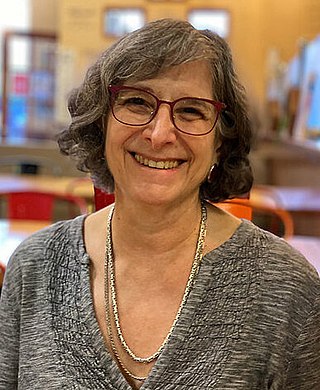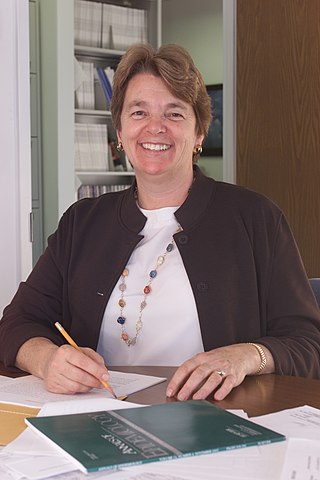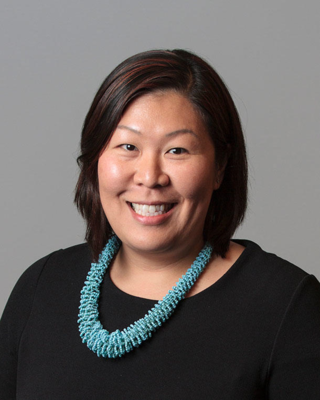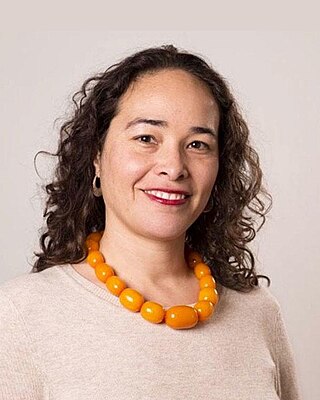
In nutrition, biology, and chemistry, fat usually means any ester of fatty acids, or a mixture of such compounds, most commonly those that occur in living beings or in food.

Vitamins are organic molecules that are essential to an organism in small quantities for proper metabolic function. Essential nutrients cannot be synthesized in the organism in sufficient quantities for survival, and therefore must be obtained through the diet. For example, Vitamin C can be synthesized by some species but not by others; it is not considered a vitamin in the first instance but is in the second. Most vitamins are not single molecules, but groups of related molecules called vitamers. For example, there are eight vitamers of vitamin E: four tocopherols and four tocotrienols.
Megavitamin therapy is the use of large doses of vitamins, often many times greater than the recommended dietary allowance (RDA) in the attempt to prevent or treat diseases. Megavitamin therapy is typically used in alternative medicine by practitioners who call their approach orthomolecular medicine. Vitamins are useful in preventing and treating illnesses specifically associated with dietary vitamin shortfalls, but the conclusions of medical research are that the broad claims of disease treatment by advocates of megavitamin therapy are unsubstantiated by the available evidence. It is generally accepted that doses of any vitamin greatly in excess of nutritional requirements will result either in toxicity or in the excess simply being metabolised; thus evidence in favour of vitamin supplementation supports only doses in the normal range. Critics have described some aspects of orthomolecular medicine as food faddism or even quackery. Research on nutrient supplementation in general suggests that some nutritional supplements might be beneficial, and that others might be harmful; several specific nutritional therapies are associated with an increased likelihood of the condition they are meant to prevent.
Steven H. Zeisel is a Kenan Distinguished University Professor in Nutrition and Pediatrics; former Chairman, Department of Nutrition; Director Nutrition Research Institute, Director UNC Human Clinical Nutrition Research Center, Director UNC Center for Excellence in Children’s Nutrition, School of Public Health, University of North Carolina at Chapel Hill.

Dietary factors are recognized as having a significant effect on the risk of cancers, with different dietary elements both increasing and reducing risk. Diet and obesity may be related to up to 30–35% of cancer deaths, while physical inactivity appears to be related to 7% risk of cancer occurrence.
Food frequency questionnaire (FFQ) is a dietary assessment tool delivered as a questionnaire to estimate frequency and, in some cases, portion size information about food and beverage consumption over a specified period of time, typically the past month, three months, or year. FFQs are a common dietary assessment tool used in large epidemiologic studies of nutrition and health. Examples of usage include assessment of intake of vitamins and other nutrients, assessment of the intake of toxins, and estimating the prevalence of dietary patterns such as vegetarianism.
The PubMed Dietary Supplement Subset (PMDSS) is a joint project between the National Institutes of Health (NIH) National Library of Medicine (NLM) and the NIH Office of Dietary Supplements (ODS). PMDSS is designed to help people search for academic journal articles related to dietary supplement literature. The subset was created using a search strategy that includes terms provided by the Office of Dietary Supplements, and selected journals indexed for PubMed that include significant dietary supplement related content. It succeeds the International Bibliographic Information on Dietary Supplements (IBIDS) database, 1999–2010, which was a collaboration between the Office of Dietary Supplements and the U.S. Department of Agriculture's National Agricultural Library.

Vitamin B3, colloquially referred to as niacin, is a vitamin family that includes three forms, or vitamers: niacin (nicotinic acid), nicotinamide (niacinamide), and nicotinamide riboside. All three forms of vitamin B3 are converted within the body to nicotinamide adenine dinucleotide (NAD). NAD is required for human life and people are unable to make it within their bodies without either vitamin B3 or tryptophan. Nicotinamide riboside was identified as a form of vitamin B3 in 2004.
Cheryl Ann Marie Anderson is an American epidemiologist. Anderson is a professor at and founding Dean of the University of California San Diego Herbert Wertheim School of Public Health and Human Longevity Science. Anderson's research focus is on nutrition and chronic disease prevention in under-served human populations.

Gretchen L. Gierach is an American epidemiologist and women's health researcher. She is the chief of the Integrative Tumor Epidemiology Branch in the National Cancer Institute.

Rachael Zoe Stolzenberg-Solomon is an American epidemiologist and dietitian. She is a senior investigator and head of the metabolic epidemiology branch at the National Cancer Institute.

Abby Gwen Ershow is an American nutritionist specialized in iodine nutrition, lipid metabolism, atherogenesis, and cardiovascular nutrition. She was a health science administrator at the National Heart, Lung, and Blood Institute from 1982 to 1989 and a senior nutrition scientist at the National Institutes of Health Office of Dietary Supplements from 2014 to 2021.

Patricia A. Hartge is an American cancer epidemiologist who conducted genome-wide association studies on ovarian cancer, non-Hodgkin lymphoma, melanoma, and other malignancies. From 1996 to 2013, Hartge was deputy director of the epidemiology and biostatistics program in the division of cancer epidemiology and genetics at the National Cancer Institute.

Hannah P. Yang is an American cancer epidemiologist who is a staff scientist and associate director of scientific operations in the National Cancer Institute's division of cancer epidemiology and genetics.

Aimée Rebecca Kreimer is an American cancer epidemiologist who researches the etiology and prevention of human papillomavirus infection (HPV) and cancer prevention. She is a senior investigator in the infections and immunoepidemiology branch at the National Cancer Institute.
Stella Koutros is an American cancer epidemiologist who researches the occupational exposures as risk factors for cancer. She is an investigator in the occupational and environmental epidemiology branch at the National Cancer Institute.

Regina Gale Ziegler is an American biochemist and nutritional epidemiologist who researched dietary, nutritional, anthropometric, and hormonal determinants of cancer risk. She was a senior investigator in the National Cancer Institute's epidemiology and biostatistics program.
Nan Hu is a Chinese physician-scientist, molecular geneticist, and cancer epidemiologist who researches gastrointestinal cancers. She is a staff scientist in the metabolic epidemiology branch at the National Cancer Institute.
Rashmi Sinha is a nutritional and cancer epidemiologist who researches diets, cancer risk, and the microbiome. She is a senior investigator in the metabolic epidemiology branch of the National Cancer Institute.

Jonine Figueroa is an American epidemiologist specializing in breast cancer epidemiology. She is a senior investigator and distinguished scholar in the integrative tumor epidemiology branch at the National Cancer Institute. She was previously a tenured professor and chair of molecular epidemiology and global cancer prevention at the University of Edinburgh.












